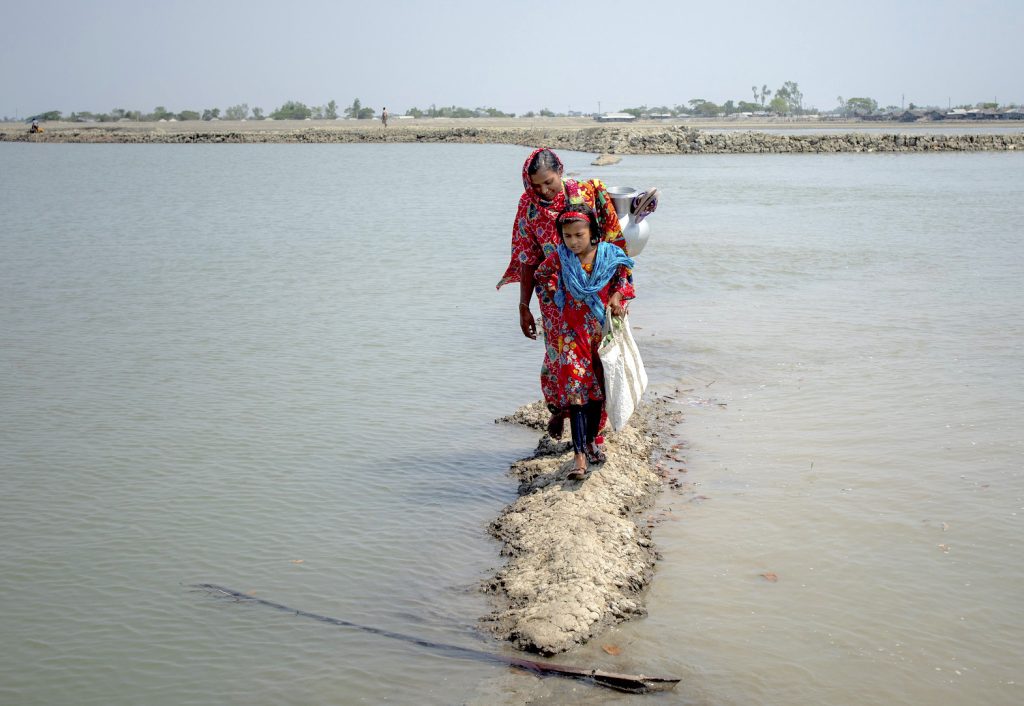Bangladesh swelters as global warming drives temperatures to new heights
Date: 15 August 2023
GCI Blog Post: Global warming continues to cast a scorching shadow over Bangladesh as the country grapples with soaring temperatures, with mercury levels reaching up to 40 degrees Celsius in many parts of the nation. The impacts of climate change are becoming increasingly evident, posing numerous challenges for the people and the environment of Bangladesh.
Bangladesh, a densely populated country in South Asia, is experiencing the harsh impacts of global warming as temperatures soar to unprecedented levels. Rising temperatures, driven by climate change, are posing serious threats to the health, livelihoods, and environment of millions of people in this low-lying deltaic nation.
The health impacts of extreme heat are dire in Bangladesh, where millions of people, especially vulnerable populations such as the elderly, children, and outdoor workers, are at risk. Heat-related illnesses, including heat cramps, heat exhaustion, and heatstroke, have become more common, leading to increased hospitalizations and deaths. The situation is exacerbated by the lack of access to clean water, electricity, and proper healthcare in many parts of the country, making it difficult for people to cope with the extreme heat.
The impacts of rising temperatures are not limited to human health alone. Agriculture, which is a major source of livelihood for the majority of the population in Bangladesh, is also facing significant challenges. The changing climate is affecting crop yields, water availability, and the timing of planting and harvesting. Rising temperatures are causing heat stress in crops, reducing their productivity and quality. Prolonged heat waves are also leading to increased evaporation, which is resulting in water scarcity for irrigation, causing crop failures and food shortages. Additionally, rising sea levels, another consequence of global warming, are intruding into freshwater sources, contaminating them with salt water, further exacerbating the water crisis in coastal regions.
Moreover, the environment in Bangladesh is also being severely impacted by rising temperatures. The Sundarbans, the world’s largest mangrove forest and a UNESCO World Heritage Site, which spans across Bangladesh and India, is facing the risk of increased salinity intrusion due to rising sea levels. The Sundarbans are home to many endangered species, including the Bengal tiger, and are critical for protecting coastal areas from storm surges and maintaining biodiversity. But the increasing salinity is threatening the unique ecosystem of the Sundarbans and the livelihoods of millions of people who depend on its resources.
Climate experts attribute the rising temperatures in Bangladesh to the global phenomenon of climate change, largely caused by human activities such as burning fossil fuels, deforestation, and industrial emissions that release greenhouse gases into the atmosphere. Bangladesh, being a developing country with low greenhouse gas emissions, contributes very little to global warming, but is disproportionately bearing the brunt of its impacts.

One of the most immediate and severe impacts of the scorching temperatures is on human health. Heat-related illnesses, such as heat exhaustion and heatstroke, are becoming more common, particularly among vulnerable populations like the elderly, children, and outdoor workers. High temperatures can also exacerbate existing health conditions, such as respiratory illnesses and cardiovascular diseases. Lack of access to adequate healthcare facilities, clean drinking water, and electricity for cooling further compounds the health risks faced by the population.
However, challenges persist in addressing the impacts of rising temperatures in Bangladesh. Limited financial resources, inadequate infrastructure, and lack of technical capacity pose obstacles to effective adaptation measures. Rapid urbanization, deforestation, and industrialization contribute to the heat island effect in cities, aggravating the problem. International cooperation and support are crucial in assisting Bangladesh to build its resilience and cope with the challenges of global warming. The rising temperatures in Bangladesh are a clear manifestation of the impacts of global warming. The heat-related health risks, agricultural losses, and environmental degradation are posing significant challenges to the country. Urgent and sustained actions are needed at local, national, and global levels to mitigate the impacts of rising temperatures, protect vulnerable communities, and build a climate-resilient future for Bangladesh.



